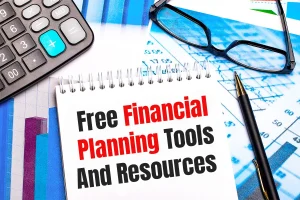
- Finance, games
- August 23, 2024
Tips on How to Avoid Making the Top 12 Most Common Investment Mistakes
“The only way to avoid mistakes is not to invest — which is the biggest mistake of all.” – John Templeton”
Although it can be tempting to focus only on what works in trading, an equally important part of trading education comes from avoiding what does not work. To help investors know what to avoid, here is a list of some of the most common investment mistakes. If you have made any of these mistakes before, then consult with a financial expert immediately.
Investment goals that are not clear
The saying “”If you don’t have a strategy, you’re part of someone else’s strategy.”” is more true in the case of investment than anything else. From the plan to strategies, portfolio design and even single securities can be created according to your life goals. However, while most investors concentrate on current fads or maximizing their short term returns, they should instead create a high-probability investment portfolio aimed at achieving their long-term objectives.
Over-expectation or borrowed expectations
Long-term investing requires a judiciously diversified portfolio that can respond to the different levels of price and return associated with diverse market conditions. Yet despite having designed such an appropriate portfolio, no one can predict what actual returns will come from the market or control them in any way. It is therefore important not to set our expectations too high and to be careful about what we anticipate. No one person can tell you whether your rate of return is fair without understanding who you are, what you want out of life, and how much money is spread among your current investments.
Excessive emphasis on taxation
It is a frequent error among investors to make financial investment decisions based on the possible tax ramifications when, in reality, this is an alien concept to many. There is a need to have knowledge about taxation issues because they have been known to substantially boost performance through tax loss harvesting. But it’s vital to anchor your buy/sell decisions on a stock’s intrinsic value rather than its tax implications.
Keeping one’s attention exclusively on incorrect performance
There are short-term and long-term periods. If you are a long-term investor, betting on the stuff that will happen in the short run can lead to negative outcomes. You end up doubting your strategies and changing portfolios in the short run. However, shifting attention from current developments to those aspects that influence your long-term achievement needs consideration. Refocus if you notice yourself concerned with immediate, short-term matters.
Overtrading or frequent trading
In the field of investment, patience is a great asset. The best benefits of an investment are often realized after some time has passed. Continuous manipulation of portfolio structures and investment strategies can lead to increased transaction costs, which may reduce profits. Besides, this may also subject us to risks we did not anticipate nor deserve. One must always check if he or she is still on course. The need to modify their portfolio should help someone learn more about the kind of assets he or she possesses rather than just trading them impulsively.
Purchasing at a premium and disposing at a discount
The basic concept of investment is to acquire low-priced goods before their values go up, then later sell them at higher prices. However, this is not what investors do all the time; they often do vice versa instead of making rational decisions. Rather than investing based on logic, fear and greed often drive many investment choices. Many times investors choose to purchase assets when they are not cheap, just like what happened during the stock market boom. Instead of focusing on long-term investment goals, they are often tempted by short-term profits.
This approach is detrimental because it leads people into buying trends or investing in assets or investment strategies that have worked recently. After all, once an asset has become hot in the eyes of the public, its price tends to become more volatile, not necessarily more stable or trend-following.
Excessive fees and commissions
Many investors make the mistake of investing in a high-cost fund or paying too much in advisory fees. They often do not consider how small increases in fees can affect their long-term wealth. Take note of the potential costs involved with each investment before you open an account. Seek funds with meaningful fees and ensure your advisory fees are worth it.
Not carrying out background checks
There are countless sources of information to find out if the individuals managing your finances are well trained, experienced, and have good ethical standards. Look for references and investigate their history whenever possible about the investments they are recommending. This can save you from facing great losses. All you need to do is look back at their past profiles and be cautious while seeking their advice.
Obscuring inflation
The majority of investors insist on nominal returns rather than real returns. This focus is concerned with examining and comparing performance after deducting costs and inflation. Even during times when there is no huge degree of inflation in the economy, prices will still go up! Always remember that what you can cherish with your precious goods is more important than their dollar value. Cultivate self-discipline to focus on what matters most: actual returns minus increases in expenses over time.
Failing to conduct frequent reviews of investments
The odds are great if you have a diversified portfolio, some assets will increase in value while others will decrease. After a quarter or yearly period, the portfolio that you planned with great care will appear much different. Stay on course! At least on a yearly basis, check to ensure your investments still fit your current situation. Also, review your portfolio for any necessary rebalancing actions. (Very importantly).
Taking an excessive amount of risk, an insufficient amount of risk, or the incorrect risk
Investing involves a certain level of risk as a means to achieve financial gain. To cut it short, the investor would experience large performance differences in their investments. This can be difficult to accept mentally and emotionally if they are being excessively risky. Alternatively, not going far enough may cause low returns that are insufficient to achieve one’s economic goals. Always evaluate your financial and emotional capacity to take risks when making investments, as well as becoming aware of any investment risks you undertake.
Choosing the wrong advisor to work with
What to know before investing is a very important question that can be answered properly by an adviser. An investment adviser ought to function as a collaborator in reaching your investment objectives. The perfect financial guru and monetary institution will always be able to solve your problems and think the same way about investments, and sometimes even about life itself. During this phase, it is essential to consider that it’s better to bear and find somebody worth working with than hurry up to choose someone.
And it’s a Wrap
These are a few common financial mistakes that people tend to commit while investing. In order to not fall into these traps, it is necessary to learn about investment rules, request the help of specialists, and remain consistent when handling money. Moreover, frequent analysis and modification of investment plans can also be advantageous. For more financial knowledge visit our website of Peak72.
Be the first to review “Message Financial Board Game Cancel Reply
RELATED POSTS

- Finance
- September 30, 2024

- Finance
- September 26, 2024

- Finance
- September 23, 2024












Utterly pent written content, Really enjoyed looking through.
ведение смм
I like what you guys are up too. Such clever work and reporting! Carry on the superb works guys I¦ve incorporated you guys to my blogroll. I think it’ll improve the value of my web site 🙂
I absolutely love your blog and find a lot of your post’s to be precisely what I’m looking for. Would you offer guest writers to write content for yourself? I wouldn’t mind composing a post or elaborating on some of the subjects you write in relation to here. Again, awesome web log!
Howdy! Do you know if they make any plugins to assist with SEO?
I’m trying to get my blog to rank for some targeted keywords but
I’m not seeing very good success. If you know of any please share.
Appreciate it! I saw similar text here: Eco blankets
I’ve been surfing online more than three hours today, yet I never found any interesting article like yours. It is pretty worth enough for me. In my view, if all website owners and bloggers made good content as you did, the web will be much more useful than ever before.